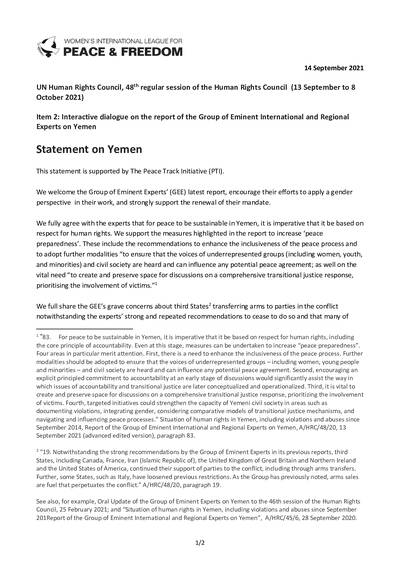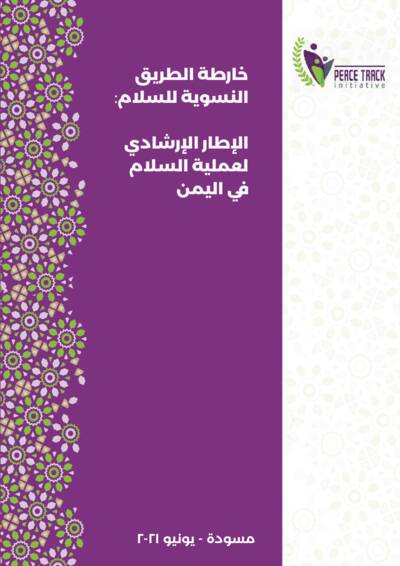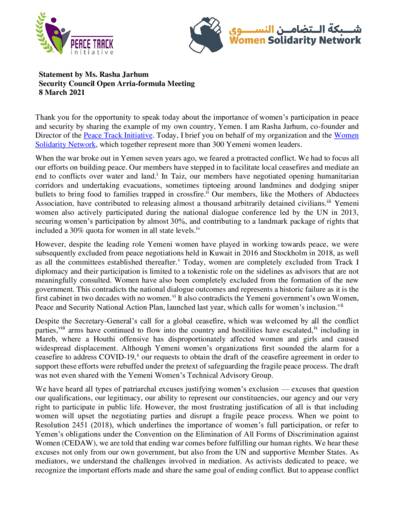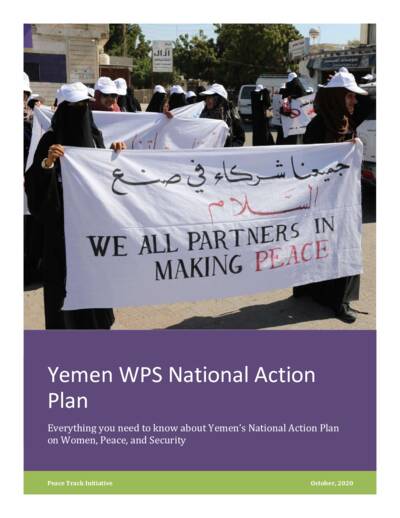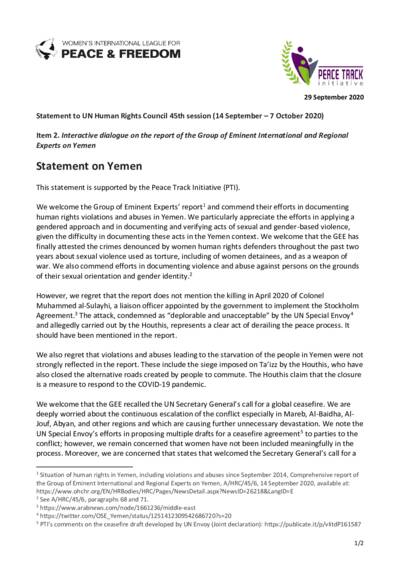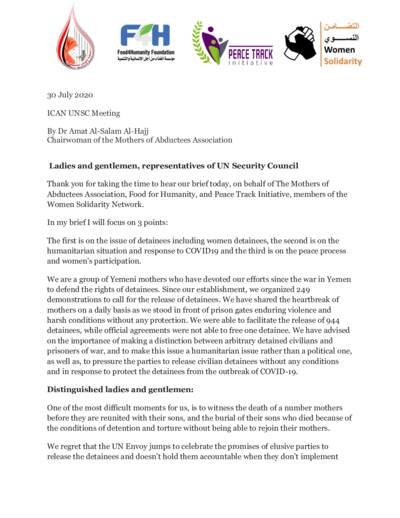In June 2021, the first draft of the Feminist Peace Roadmap was introduced. This document was the outcome of extensive consultations led by the Peace Track Initiative (PTI) in collaboration with a broad group of Yemeni women leaders, political figures, civil society representatives, and independent experts, both in Yemen and the diaspora. The 2021 Roadmap was developed as a comprehensive framework intended to consolidate and reflect the shared perspectives of various feminist groups on building a more inclusive and equitable peace process in Yemen.
The drafting of the 2021 Feminist Peace Roadmap was a collaborative process. PTI facilitated a series of consultations throughout 2020 and 2021, involving approximately 30 women leaders from political and civil society backgrounds, as well as experts. These discussions initially centered on key elements of the ceasefire process, particularly in response to the Joint Declaration proposed by the Office of the Special Envoy of the Secretary-General for Yemen (OSESGY), and sought to identify women’s priorities in this context. Participating groups included the Women Solidarity Network, the Yemeni Women Pact for Peace and Security, the National Reconciliation Movement, and several women-led organizations such as Food for Humanity, the Mothers of Abductees, AWAM Development Foundation, Wogood for Human Security Foundation, To Be Foundation for Rights and Freedoms, Sam Initiative, the Women Alliance for Peace, the Southern Feminist Movement, the Democratic Social Forum, and the Taiz Women for Life Initiative. In total, 148 women and 38 men participated, representing various constituencies across Yemeni society, including displaced individuals, families of detainees, community leaders, and professionals from multiple sectors.
The principles and structure of the Roadmap are based on international human rights standards and established peacebuilding practices. It adopts a rights-based approach with attention to gender and conflict sensitivity and calls for the implementation of international treaties ratified by Yemen, such as CEDAW and UN Security Council Resolution 1325. The Roadmap outlines guiding principles including equal citizenship, non-discrimination, a victim-centered approach, accountability, democratic participation, civilian protection, access to justice, and enhanced decentralization.
The draft Roadmap was formally discussed during the High-Level Convening on Feminist Peace in Yemen, held virtually from June 28 to July 2, 2021. The event was co-hosted by PTI, the Women’s International League for Peace and Freedom (WILPF), the Dutch Ministry of Foreign Affairs, and the Norwegian Agency for Development Cooperation (Norad). The convening provided an opportunity to reflect on the contributions of Yemeni women to peace processes and to collect input on the draft Roadmap.
The main objectives of the convening were to offer a space for Yemeni women to present their perspectives and work on peace-related issues, facilitate exchanges with diplomatic stakeholders including UN representatives, and gather feedback on the Roadmap. The agenda addressed a range of topics relevant to the peace negotiations, with presentations from grassroots actors, scholars, government officials, and diplomats. The interaction between community-based initiatives (Track II and III) and formal diplomatic processes (Track I) was among the key aims of the event.
The Feminist Peace Roadmap, as shared during the conference, proposed a set of policy recommendations emerging from two years of consultations on topics such as security sector reform, economic recovery, prisoner exchange, salary payments, local governance, humanitarian priorities, transitional justice, and the broader importance of an inclusive and gender-responsive peace process. Following the convening, the intention was to finalize the Roadmap and circulate it through UN diplomatic mechanisms, including the Arria Formula meetings, to inform Member States and Security Council representatives about gender-relevant aspects of Yemen’s peacebuilding challenges.
The 2021 Feminist Peace Roadmap and its presentation at the Feminist Peace Conference represented an important stage in coordinating and elevating the contributions of Yemeni women and feminist organizations. It offered a structured and inclusive approach to supporting sustainable and equitable peacebuilding in Yemen. The process also reflected the depth of engagement and expertise among Yemeni women working in this field.
As a living document, the Roadmap remains open to further input and adaptation. Once finalized, it is intended to serve as a practical reference for policymakers, mediators, and international actors committed to supporting peace and stability in Yemen.
